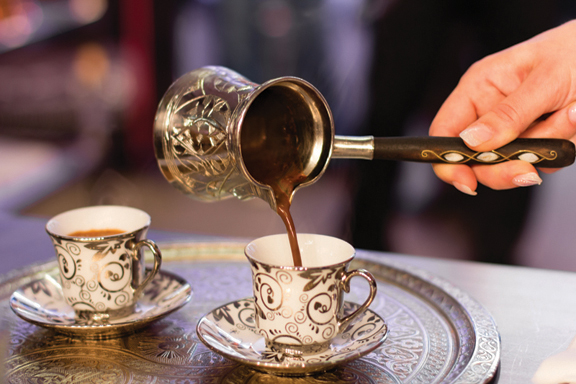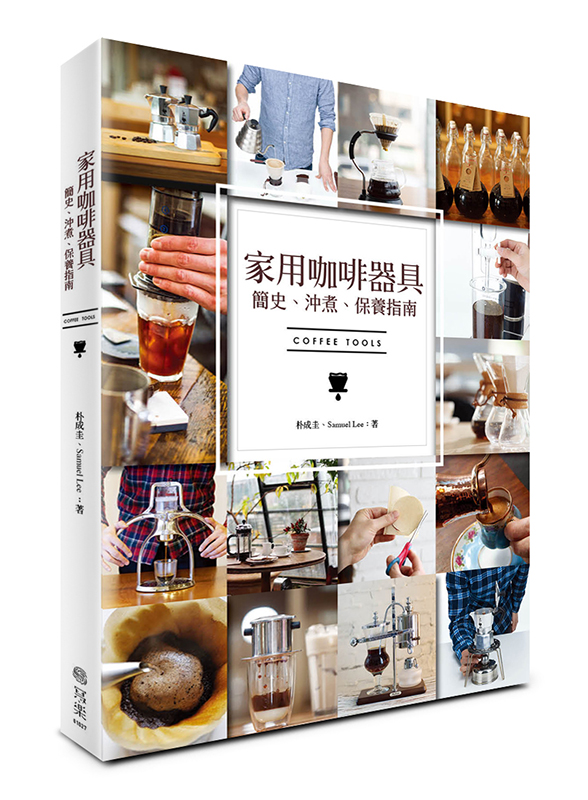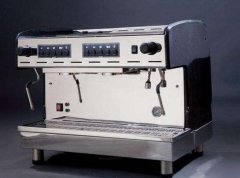How to use Turkish coffee for divination? What do coffee grounds patterns mean?

For professional baristas, please follow the coffee workshop (Wechat official account cafe_style)
Whether you are just a light coffee fan with a cup of coffee in the morning every day, or a coffee professional who is planning to open a coffee shop with hand-brewed coffee as the selling point, the Guide to the brief History, brewing and maintenance of Household Coffee utensils introduces 11 of the most popular coffee utensils in the world and recognized by coffee fans as their favorite coffee utensils, including not only the history of the appliances, interesting stories, how to use them, purchase and storage It also covers the inventors of the apparatus, expert interviews, practical use evaluation, etc., so that readers can also learn to extract professional-grade coffee.
IBRIK Turkish coffee maker
The history of the Yvlik kettle
In the 6th and 7th centuries, the Gala people in Ethiopia began to eat coffee fruits and boiled grass leaves; in the 9th century, Persians cooked coffee fruits and used fruit juices as medicine By the middle of the 15th century, it began to be popular in Yemen that the coffee beans in the fruit were roasted, ground and cooked with the pulp, known as "Kawa", and spread to Turkey, where the weather was hotter than that in Yemen, and the coffee pulp was not easy to preserve. so we bake coffee beans and grind them to make coffee. Turkish coffee is one of the oldest methods of extraction.
The utensils used to make Turkish coffee are called Ibrik and Cezve. Strictly speaking, the Evelick kettle, which means "water canister" in Turkish, is an instrument with a lid that looks close to a long-nosed pot. The cut crape myrtle pot, which means "burning firewood / coal" in Greek, is made of pure copper with a long handle. However, when it comes to Turkish coffee utensils in China, they are collectively referred to as Yvlik pots.

The earliest blended coffee
Coffee was first drank without sugar in the Middle East, until after the mid-16th century, when the Turks occupied the sugar-producing island of Cyprus, aristocrats and rich people began to add sugar to their coffee. In addition to granulated sugar, different countries will be mixed with a variety of spices, such as cinnamon, cloves and so on. Come to think of it, the ancestor of all kinds of fancy coffee today is Turkish coffee.

Modern Yvlik kettle
The Yvlik pot was originally made of good pure copper with good thermal conductivity, but later, products made of other materials such as stainless steel or ceramics also appeared. Recently, the Yvlik kettle, which is not only made of material, but also has a modern design, has been launched on the market recently, and the heat source has also expanded from alcohol lamp to gas stove, mountaineering gas stove, black crystal stove, and so on. Even in Turkey, there is a shop hot kettle type of Evelick kettle, which can be called a coffee utensil that embodies the traditional spirit in a modern way.
The ancient coffee culture
Coffee has been rooted in Turkish life since the Ottoman Turkish Empire. At that time, men had to prepare coffee for the whole family, which was the responsibility of parents. If it is not fulfilled, the wife even has the legal right to divorce. In aristocratic families, some have servants who specialize in making coffee. Midwives also use coffee as a painkiller to relieve maternal labor pains. The parents of the Turkish groom will visit the bride-to-be's home, taste the coffee cooked by the bride-to-be, and decide whether or not to get married according to the taste of the coffee. The origin of the word "Cafe" also comes from Turkey. In 1554 Constantinople, the capital of the Ottoman Empire, appeared a "Kabeh" decorated with carpets, gems and tiles, specializing in cooking Turkish coffee. After "Kabeh culture" spread to Europe, "Kabeh" became the etymology of "coffee" and "Cafe".
The milk pot also works well.
Yvlik pots are not very popular coffee brewing utensils. The daily Kalita company's take-off is about 1500 yuan, and the cheaper ones are also 700,800 yuan. In fact, if you don't pay attention to appearance, there are utensils that can be used as substitutes, and milk pots (Milk pan) with similar appearance can be bought for as little as a few hundred yuan, but the disadvantage is that the capacity is not necessarily suitable.
The bridge of dialogue: coffee divination
Turkish coffee usually leaves the last sip, and most people are ungrateful to the coffee dregs, but the Turks sublimate the coffee grounds into a culture. when the coffee is left with the last sip, they think about what they worry or want to know. While slowly shaking the coffee cup, buckle it upside down on the coffee tray and wait for the cup to cool, then turn the cup over and observe the coffee powder pattern left in the cup. To do divination. Whether or not to be sure is one thing. For Turks who attach importance to interpersonal relationships, coffee divination serves as a good communication bridge and provides the theme of dialogue.

Coffee divination
Heart shape: the luck of love is good. People who have no partners will fall in love, and lovers will get married in the end.
Or something good can happen at work.
Bird: there are guests with good news from not far away.
Ma: the unmarried will have a good marriage, and the married will be praised by the people around them.
Fish: money comes from all directions. The bigger the fish, the more the amount.
Tortoise: you will know a beautiful woman or a handsome man.
Elephant: you will get a good position and get good grades in your work.
Rabbit: there will be surprises around you, so take a good look at the things around you, because the coming surprises depend on listening. Especially for students or those who are interested in their studies, they will get good grades in the exam.
Number 3: things will succeed.
Number 2: misfortune or illness can happen.
The number 1: you will get love.
Duck: more and more wealth is coming to the door.
Camel: great happiness, wealth is imminent, or a good man proposes.
Cat: it stands for docile and knows smart people.
Rooster: there are little people around trying to sow discord between you and your friends.
Dog: the dog has 42 teeth, so the wish will come true after 41 days.
Tree: the tree is the decoration of the earth, the clothes of the earth, for people, with the meaning of finishing appearance or fashion. Therefore, we must pay attention to fashion trends, especially in jewelry.
Snake: try to find the enemies lurking around you.
Road: it means that you will get rid of the predicament and go to a new road or bright road.
The length of the line indicates the travel distance, and the concentration and clarity of the line indicate the travel time.
The thicker the line, the shorter the travel time, the lighter or less obvious the line, indicating a long journey.

This article comes from the brief History, brewing and maintenance Guide of Household Coffee utensils published by Le Culture.
Important Notice :
前街咖啡 FrontStreet Coffee has moved to new addredd:
FrontStreet Coffee Address: 315,Donghua East Road,GuangZhou
Tel:020 38364473
- Prev

Why is the Italian coffee machine deflated? how to use the Italian coffee machine?
Professional barista communication please pay attention to the coffee workshop (Wechat official account cafe_style) to turn off the coffee machine after use, and let the knob in the steam position to vent pressure: because in the production of coffee, the machine heating internal will produce a large number of high-pressure gas, the gas needs to be discharged before opening the water inlet lid; at the same time, in order to prevent the pressure in the boiler when the next heating is turned on
- Next

Permanent exhibits from the New York Hyundai gallery collection! Legendary CHEMEX hand coffee filter pot
Communication of professional baristas Please follow the coffee workshop (official Wechat account cafe_style) whether you are just a light coffee fan with a cup of coffee in the morning every day, or a coffee worker who is planning to open a coffee shop with hand-brewed coffee as the selling point, the Guide to the brief History, brewing and maintenance of Household Coffee utensils introduces 11 kinds of coffee utensils that are the most popular in the world and recognized by coffee fans.
Related
- What is the Philharmonic pressure? How to use Philharmonic pressure to make delicious coffee
- Why does a hand grinder have more fine powder than an electric grinder?
- In addition to the hot mom, what is the difference between the versions of EK43 | ditting and Mahdi ek43?
- What kind of equipment do you need to make coffee by hand? Introduction to novice starter cooking equipment tools
- Espresso needs to be ground how thick and thin scale entry Italian Coffee Machine Bean Grinder investigation and Grinding course
- How much does it cost to open a small private cafe? How much does it cost to learn coffee? How to operate it?
- The difference between the flavor characteristics of hand-brewed coffee and coffee maker is hand-brewed coffee really better than coffee maker? Can I use a coffee machine to make coffee beans by hand?
- The difference between 01 and 02 of hario v60 filter cup what is the difference between 01 and 02 filter cup opening and cooking flavor
- What's the difference between the smart cup and the French kettle? Which is better, the French kettle or the Smart Cup?
- What's the difference between a smart cup and a V60 filter cup? The difference between the taste of smart cup and hand-brewed coffee

